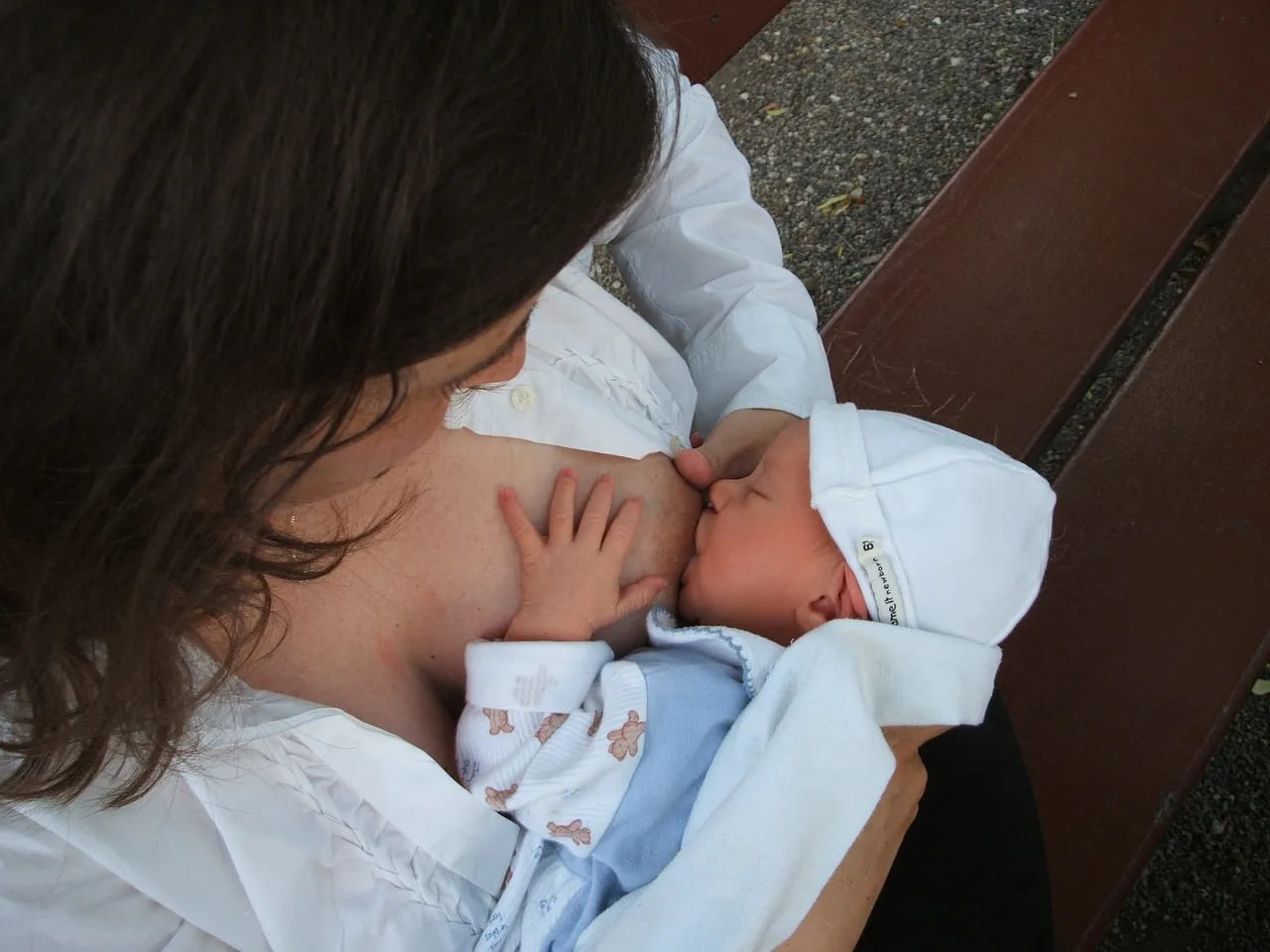Good nutrition during a child’s first days of life builds the foundation for a healthy brain and body, and for lifelong health. Breast milk is the perfect food for infants. It is safe, clean and contains antibodies that help protect against many common childhood illnesses. Breastmilk provides all the energy and nutrients that the infant needs. The World Health Organization (WHO) and all other health organizations recommend exclusive breastfeeding for the first six months of life. For mothers, early counseling, especially during the third trimester, can greatly improve breastfeeding success.

Why breast milk is nature’s perfect first food
Breast milk is a dynamic, living substance uniquely suited to a baby’s needs. It contains antibodies, enzymes, and hormones that adapt to support growth, immunity, and brain development. The first milk, called colostrum, is a thick, golden liquid produced immediately after birth. Often called “liquid gold,” colostrum acts as a natural vaccine, providing immunity-boosting compounds like immunoglobulin A (IgA) to protect newborns from infections.
Breast milk also changes over time, adjusting its nutritional makeup to match the baby’s developmental stage. It is sterile, always at the right temperature, and free, making it an ideal food source.
What is exclusive breastfeeding?
Exclusive breastfeeding means feeding a baby only breast milk for the first six months, without any additional food or liquids, not even water. Breast milk provides all the energy and nutrients a newborn needs for growth and development.
Exclusive breastfeeding benefits both the child and the mother. Immediate skin-to-skin contact and starting breastfeeding within one hour of birth should be encouraged. The mother’s first milk, which is thick and yellow (colostrum), should be given to the child. It provides immunity and helps with digestion.
For the baby to suckle well, make sure baby suckles with mouth wide open, chin close and touching the breast, lower lip turned outward, and with more areola seen above the baby’s mouth than below.
Read more at Breastfeeding Your Baby: Common Breastfeeding Positions
Benefits of exclusive breastfeeding for the child
- Breast milk is gentle on a newborn’s digestive system, making it easier to digest.
- It protects against common infections like diarrhea and pneumonia by strengthening the immune system.
- Breastfeeding strengthens the mother-child bond.
- It promotes brain and body growth.
- It significantly lowers the risk of early childhood diseases and reduces infant mortality.
Benefits of exclusive breastfeeding for the mother:
- Reduces bleeding after childbirth
- Helps prevent breast engorgement
- Helps prevent ovarian and breast cancers
- Helps mothers return to pre-pregnancy weight
- Reduces risk of high blood pressure and Type 2 diabetes
- Reduces risk of postpartum depression
- Oxytocin from breastfeeding lowers stress
What should be the frequency and duration of breastfeeding?
Since the baby is only given breast milk, the frequency of feeding depends on the baby; feeding should be done as per the baby’s demand. This means that you will be feeding your baby at least 8 to 12 times a day. Co-sleeping can make nighttime breastfeeding more convenient for both the mother and the baby. It allows for easier access to the breast, and the close proximity can help strengthen the bond between mother and child. It may also provide opportunities for kangaroo mother care, which means keeping baby close to mother to regulate body temperature. However, co-sleeping is a personal choice that should be made with careful consideration of safety guidelines to reduce the risk of accidents or suffocation.
Pro Tip: Track wet diapers to ensure adequate intake. By day 5, expect 6+ wet diapers and 3-4 stools daily.
The duration of breastfeeding sessions varies from baby to baby. While 20 to 45 minutes is a typical range, each baby is different and their needs may not be the same. Some babies may drink breastmilk more quickly, while others may take longer. It is generally recommended to let the baby feed from one breast until they seem satisfied or have finished nursing on that side before offering the other breast. This way the baby receives both the foremilk (thinner, hydrating milk) and hindmilk (richer, more satisfying milk).
Fun Fact: The first milk produced just after birth, Colostrum, is considered baby’s first vaccine ! Read more at Colostrum, the Liquid Gold: Baby’s First Vaccine
FAQs: your top breastfeeding questions answered
Q: How do I know if my baby is getting enough milk? A: Look for steady weight gain, audible swallowing, and contentment after feeds.
Q: Can I breastfeed after returning to work? A: Yes! The PUMP Act (2023) requires U.S. employers to provide break time and private spaces for pumping.
Q: What if I have low milk supply? A: Power pumping, hydration, and galactagogues (like oats or fenugreek) can boost supply. Consult an IBCLC for personalized plans.
Read more about Common Myths About Breastfeeding
Conclusion
Exclusive breastfeeding is the healthiest choice for newborn babies. Breast milk provides the right balance of nutrients, antibodies, enzymes, and hormones for their growth and development. Exclusive breastfeeding is not just a mother’s responsibility. Employers, healthcare systems, and families all need to support mothers who choose to breastfeed.
Breastfeeding provides unmatched health benefits for babies and mothers. It is the clinical gold standard for infant feeding and nutrition, with breast milk uniquely tailored to meet the health needs of a growing baby. We must do more to create supportive and safe environments for mothers who choose to breastfeed.
Dr. Ruth Petersen, Director of CDC’s Division of Nutrition, Physical Activity and Obesity.